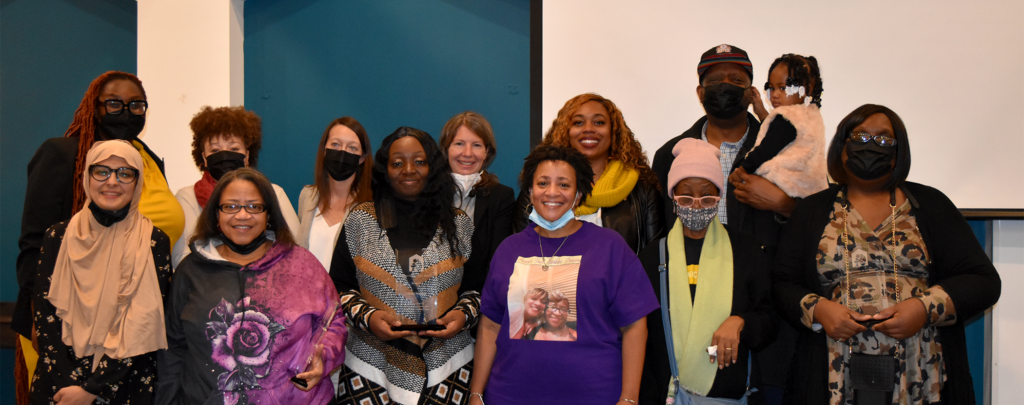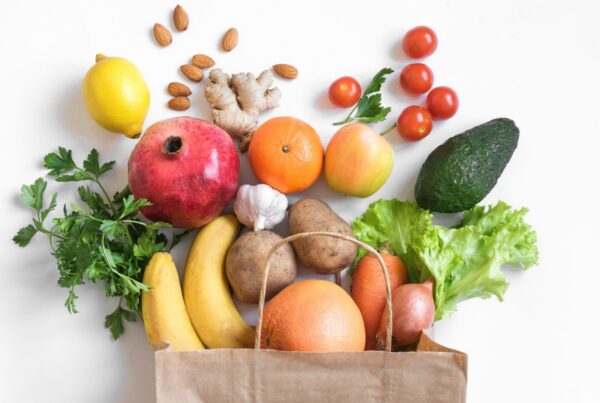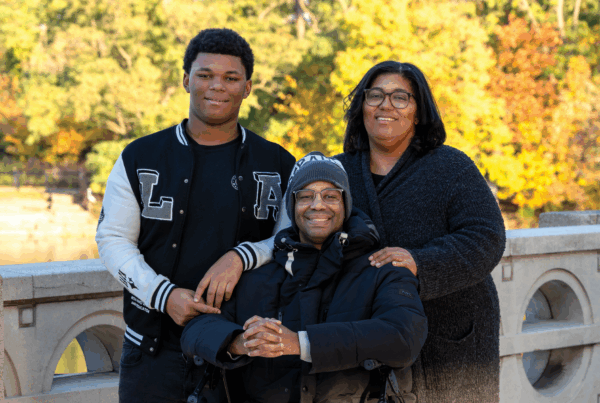
Temporary Assistance for Needy Families (TANF) is a program that gives monthly cash grants to children and their families in need. Families use it to pay rent, utilities, clothing, hygiene products, diapers, and transportation. Families that qualify for TANF are the poorest of the poor. Though families qualify for TANF almost a third decide not to apply because of the barriers they face throughout the process. CCH, along with our advocacy partners, are working to make TANF a workable program for all.
2018: COIN (Creating Opportunities for Illinoisans in Need) Act
During the 2018 legislative session, the Creating Opportunities for Illinoisans in Need (COIN) Act was passed. This began years of action and impact to come.
The COIN Act raised Temporary Assistance for Needy Families cash assistance for the first time in a decade.
The COIN Act changed the monthly grant amount. It was now 30% of the Federal Poverty Level (FPL) at the time (2018), up from 21%-25%. For example, a family of three in Cook County (a mom with two children) used to get$432 per month but could now get $520 per month. The legislation also pegged the grant amount to the annual change in FPL. So each year families receive an annual bump in their cash benefits.
The COIN Act lifted more barriers too. It removed county groupings, so the grant amount cannot change based on where you live.

2019: HB 3129
As part of the 2019 Legislative agenda, CCH worked with Representative Mary Flowers and Senator Mattie Hunter to further strengthen TANF for families.

This Legislation ensured that 75% of the TANF grant belongs to the child.
Meaning sanctions can only affect the parent’s portion of the cash assistance. A sanction is when a family has their benefits stopped because the adult has not met a certain requirement set by their caseworker.
These sanctions can last for months and take weeks, or longer, to resolve. Families experiencing these sanctions reported utility shut-offs, eviction or housing insecurity, mother or child hunger, and not being able to get medical care.
2021: HB88
House Bill 88 opened TANF to more people across the state.
In 1996 the federal government passed the Personal Responsibility and Work Opportunity Reconciliation Act, also known as welfare reform. One provision in the Act barred parents with drug felonies from being able to apply for TANF grants and SNAP (Supplemental Nutrition Assistance Program) support.
Illinois opted out of the SNAP ban in 2014 and made the TANF ban only 2 years for some parents.
HB88 removed the barrier of denying cash assistance to families where a parent has a drug felony.
This bar only worked to ensure families remained in a cycle of poverty. This made parents face an uphill battle in gaining employment, housing, and support services. HB88 gives parents a real chance to successfully re-enter their communities and successfully parent their children.
TANF Research
Each year CCH hosts focus groups with TANF-eligible families to learn more about the program and the barriers they face in applying for and maintaining TANF. With that work in mind CCH along with Heartland began a project that would change the way we think about cash assistance programs in our community.
In expanding the work, Heartland and CCH wanted to move away from focus groups and instead have the people impacted (those with lived experience) create the hypothesis and questions, and engage their communities to determine the next steps in the advocacy. This led to the creation of the Research Advisory Board (RAB), with the collaboration of Heartland Alliance, Heartland Alliance’s Social IMPACT Research Center and CCH’s Organizing and Policy Departments.
The Research Advisory Board includes Ms. Betty, Maxica Williams, and Taishi Neuman. Two RAB members Ms. Leeanna Majors and Ms. Edrika Fulford passed before the report was finished. We remember them both, and their work as researchers and advocates for this project will never be forgotten.
Their research started by looking at TANF administrative data from October 2017 – April 2021.
The research had a few major takeaways:
Less than two-thirds of estimated eligible families with children under 5 were enrolled in TANF in 2018 (62%) and 2019 (63%). Black families are disproportionately sanctioned as compared to other racial groups in Illinois. While the bureaucracy of TANF is the most frequently reported reason that a family is sanctioned, Black families are more likely to be sanctioned for child support non-compliance.

2022: HB4423
This year, in the FY22 legislative session CCH and Heartland Alliance worked alongside Leader Marcus Evans and Senator Adriane Johnson to introduce HB4423: Creating Opportunity for Illinoisans in Need II (COIN II). This legislation will raise the TANF grant amount to 50% of the Federal Poverty Level (FPL). This is the next step from the COIN Act passed in 2018 which raised grants to 30% of the FPL.
With COIN II, the same mom and two children would now be able to get $915 in cash grants each month. This bill would also make sure all paid child support goes to the child and isn’t retained by the government. Currently, the state retains $30-50 million annually in child support paid by the noncustodial family For each dollar these parents pay in child support only 14 cents is given to their child.
In other states, when child support went to supporting the child relationships between kids and their non-custodial parent relationships improved as well as the relationship between the two parents when the family received these funds.

The COIN II Act commits all child support funds go straight to families across Illinois.
Housing is just the start of making a home. Help give families another chance to start a cycle of change, to keep the utilities on, food on the table, and to make housing a human right.
You can read the report brief linked here:
This blog was put together by CCH’s communications department using past legislative summaries written by Niya Kelly, and with considerable reference to the TANF: Resigned to the Process report.






